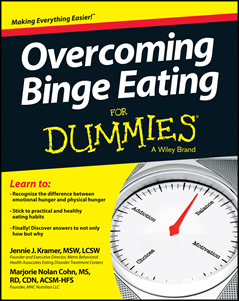Juneteenth, or Freedom Day and Liberation from Diet Culture

What is Juneteenth?
Juneteenth (June + nineteenth) is a commemoration of African American freedom from enslavement in Galveston Texas. Even though the Emancipation Proclamation was enacted two and a half years before, on January 1, 1863, in some cases news was slow to travel so far west. In other cases, the Union forces were unable to enforce the proclamation in Confederate-controlled areas and slaveowners flat refused to acknowledge the Emancipation Proclamation. On June 17, 2021 President Joe Biden signed a bill making Juneteenth a federal holiday.
Juneteenth represents freedom and liberation but also places an emphasis on family, community and connections to the African homelands. Celebrations are characterized by cookouts, barbecues, rodeos, parades, and activism.
What is Diet Culture?
Diet culture is a whole lifestyle and belief system built around weight loss and glorifying being or trying to be thin over all else. Diet culture is all around us, every single day. Sometimes it’s easy to spot and other times we may not recognize it. Diet culture dictates that we have to be thin to be beautiful, happy, and healthy.
Diet culture doesn’t necessarily mean actually going on a diet. It could look like (but is not limited to) the following:
- Feeling guilty because of something that you ate that wasn’t considered “healthy” or “clean”
- Having to do grueling exercise to “burn off” some food you ate or earn the right to eat something
- Assuming someone is healthy because they’re thin and assuming someone is unhealthy because they’re fat
- Assigning moral values to food and the person eating the food
- Worrying about macronutrients in everything you eat
- Admiring or judging people for their food choices
- Telling people you’re “down ## pounds” expecting praise
- Restricting certain foods or whole food groups even if you’re not on a diet, it’s a “lifestyle change”
- Thinking about your weight and stressing about what to eat 24/7
- Commenting on other people’s bodies (it doesn’t matter if it’s positive or negative)
- Not recognizing that exercise is for health but not weight control
- Holding off until you lose weight before you can do something like go on a trip, buy new clothes or try a new fun activity
- Pretending that some unappealing diet food tastes good or “yummy” only because you think it’s considered healthy and it makes you look good to others
- You have food rules, cheat days and “resets”
Diet culture is not just a random phenomenon. It is a carefully orchestrated tool of racism and patriarchy to control women, and specifically to control black women. The thing about diet culture is that although it is extremely pervasive, we can choose how it affects our lives, much more than other forms of historical oppression.
Why Juneteenth is the Perfect Occasion for Diet Culture Liberation
Diet culture often demonizes traditional foods and promotes a limited list of foods as “healthy”. The idea that some foods are judged as good and others as bad is a central concept of diet culture and urges us to abandon our traditional ethnic dishes in the name of health. But our traditional cuisines are not bad or unhealthy at all. The idea of healthy eating is simply that we enjoy a variety of different foods on a regular basis in order to create nutritional balance.
It is so appropriate to have Juneteenth, or Freedom Day as a beginning point to recognize how diet culture impairs our freedom to be who we are and feel good about ourselves, as well as our ability to live healthy lifestyles filled with joy and happiness.
Juneteenth celebrations are often centered on rich food traditions. African Americans have established that red foods and dishes that represent good fortune are the cuisine of the day. Red juice or soda, hibiscus tea, watermelon, berries, red velvet cake are common treats. Just as blackeyed peas and greens are included in New Year’s Day prosperity meals, they are also popular Juneteenth dishes. Grilled meats, sweet potatoes, corn and cornbread are also holiday staples.
According to culinary historians, the color red has important meaning to the occasion. Red represents the sacrifice and bloodshed of the enslaved people, and also has West African spiritual and philosophical value as it symbolizes sacrifice, transition and power.
“The practice of eating red foods—red cake, barbecue, punch and fruit—may owe its existence to the enslaved Yoruba and Kongo brought to Texas in the 19th century,” from present-day Nigeria, Ghana, Togo, Benin, and the Democratic Republic of Congo, writes culinary historian and food writer Michael Twitty in his blog, Afroculinaria.
Experiencing Personal Freedom on Freedom Day
Just as it is common to use the new year to embark on diet culture inspired behaviors, we can do the opposite on Juneteenth. This would mean being present in the moment and enjoying the freeing feeling of relaxing instead of stressing about food. Honoring the freedom of our ancestors while honoring our rich culinary heritage makes perfect sense.
We can make the choice to be free from diet culture for our health, our happiness, and in honor of freedom, both historical and personal on Juneteenth.
Lisa Branscomb is a food and lifestyle freedom coach centering black women’s wellness. Learn more at LifeBlissWellness.com

Helping You Gently Find Your Balance
Ask About Our Free Consulation
Control binge eating and get on the path to recovery. This book provides trusted information, resources, tools, and activities to help you and your loved ones understand your binge eating — and gain control over it.
Certified Eating Disorder Specialist designation by the International Academy of Eating Disorder Professionals



